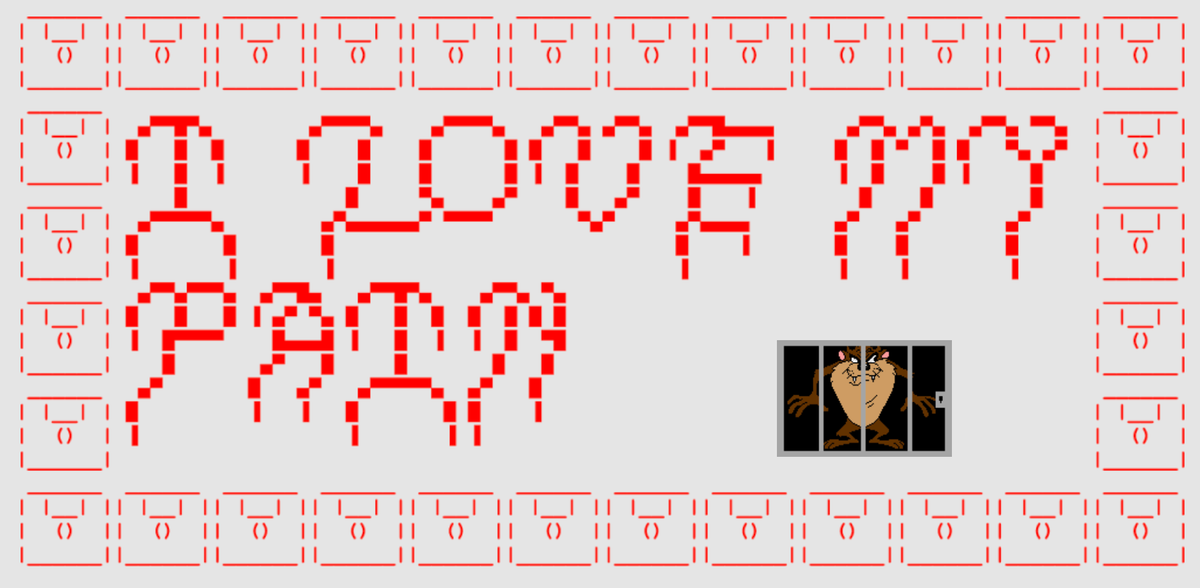Tune In, Check Out

The most prescient record of the next four or infinite years is DIIV’s “Frog in Boiling Water,” which got a nasty review and a 7.5 from Pitchfork last year.
I listened to “Frog in Boiling Water” a lot after its release, despite being totally uninterested in DIIV prior to that record. It’s an incredibly bleak album about someone dealing with severe personal depression and even more severe political disillusionment. Its precision is unnerving; I’d feel suspicious of surveillance if these weren’t the conditions of nearly everyone around me.
The album opens with a plain sentiment: “I can't look away/In anger/I want to disappear.”
For 45 minutes, DIIV uses shoegaze sounds and distant vocals to reflect the way that falling into madness — or political turmoil — is a slow fade that ends in collapse. It’s an intensely political record that doesn’t slap you in the face to wake up. Instead, it steeps you in desolation until you’re with DIIV in the boiling pot of despair.
“We understand the metaphor to be one about a slow, sick, and overwhelmingly banal collapse of society under end-stage capitalism, the brutal realities we’ve maybe come to accept as normal,” DIIV said in a very normal and not at all unusual artistic statement about the record.
“That’s the boiling water and we are the frogs. The album is more or less a collection of snapshots from various angles of our modern condition which we think highlights what this collapse looks like and, more particularly, what it feels like.”
Over the last three months, I’ve thought a lot about what new music will be like during this round of the Trump administration and beyond. Political turmoil is the biggest accelerant in artistic evolution, so we can assume that what gets created in the coming years will either directly or indirectly be in response to this fragile moment in American democracy.
My prediction is that “dissociation” will be the central theme of the upcoming future of American rock music. We’ll be checked out, catatonic, and consuming things that make us feel very far away from the core pain and fear that follows the daily headlines.
It won’t be the only way artists respond, of course: I expect we’ll have a new version of Rage Against The Machine, and there are plenty of singer-songwriters carrying on our national tradition of twangy pleading for peace.
But as of right now, I expect a lot of musicians and bands that come up through the indie scene will be making music that is fuzzy and a little emotionally dry.
No one pulled us out of the water while it was still lukewarm. The daily political experience is exhausting, and I expect the art that is made in response to it will reflect the inescapable feelings of melancholy. The themes on FIBW are gutting and resonant, but it is an easy listen. Soft, distant records will allow for passive consumption in a moment of overstimulation.
Personally, I spend all day tuned in to the horrors. When it comes to my free time, I’m eager to check out.
Prior to FIBW’s release, DIIV put up a website that features left-wing conspiracy theories and a variety of political commentary. The Pitchfork review, which said the band was exhibiting “anxious hysteria,” called the website unhinged — which it is. But it’s unhinged in the way that Daniel Johnston’s writing and drawing were unhinged. Johnston was a person in obvious pain.
Most people posting strange images and unhinged conspiracy theories are in obvious pain — and they’re being exploited by the people and institutions planting these seeds of poisoned thought. Paranoia is now our national condition. Who wouldn’t be asking questions and seeking answers?
“Where do we even come from?” DIIV’s website asks. “Why do we agree to work for money? Something that only causes pain and suffering and creates lines between us. [...] This is because capitalism is a powerful machine and we are all greasing it with our blood and sweat.”
I anticipate a lot more of this sound and sentiment over the next few years. “They own our lives and harvest our suffering” pretty much sums up the American experience, regardless of political affiliation. I think. Or I perceive. Or I feel — when I can stand it.
We are the frogs, the water is boiling, and our bodies and minds shut down when pain becomes too much to endure.
Critical Thinking is a reader-supported publication. To support my work, consider becoming a free or paid subscriber.





